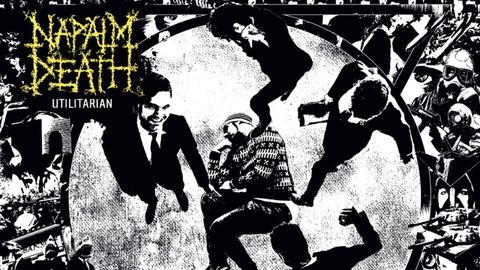Founded three decades ago, with the current line-up dating back over 20 years, Napalm Death have matured from grindcore extremists into a trusty British brand as reliable as Marks and Spencer – or Wallace and Gromit at least.
The 14th album by these West Midlands ear-shredders is another reassuringly hideous all-out assault on taste and melody, packed to bursting point with breakneck blast beats, insanely overdriven guitars and grotesquely guttural vocals. It should feel predictable by now, but there just seems to be something about intense, visceral, skull-fucking hatred for humanity that never gets old. It’s the gift that keeps on giving.
Drawing on the Occupy movement for its political rage, Utilitarian also boasts a pleasingly broad musical agenda. A howling jazz-punk saxophone becomes an ingenious torture-porn device in Everyday Pox while several tracks, notably Fall on Their Swords and Leper Colony, blend high-speed thrashcore with Viking-voiced, Wagnerian goth-metal. Vocalist Mark Greenway cites Swans and My Bloody Valentine as inspiration for these more epic tracks, although you may hear Celtic Frost and Rammstein too.
Impressively, it appears you can teach old dogs new tricks after all, even old dogs who are chewing on the bloody stumps where your legs used to be.


